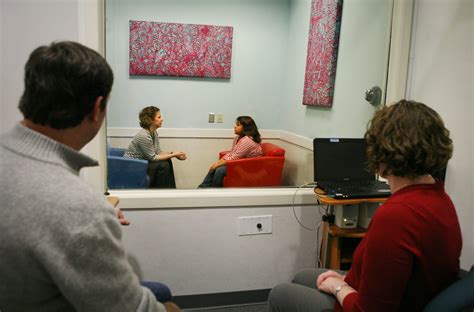How Accurate Are Forensic Interviews
Ronan Farrow
Apr 03, 2025 · 3 min read

Table of Contents
How Accurate Are Forensic Interviews? A Critical Look at Techniques and Challenges
Forensic interviews are a crucial part of investigating child abuse and other serious crimes. They aim to elicit accurate and reliable information from children, who are often considered vulnerable witnesses. However, the accuracy of these interviews is a complex issue, dependent on numerous factors and subject to ongoing debate. This post will explore the accuracy of forensic interviews, examining both their strengths and limitations.
Factors Affecting the Accuracy of Forensic Interviews
Several factors significantly influence the accuracy of information obtained during a forensic interview:
Interviewer Training and Skills:
- Specialized Training is Key: Highly trained interviewers are essential. Proper training equips interviewers with techniques to build rapport, manage distractions, avoid leading questions, and accurately interpret children's responses. Untrained interviewers can unintentionally lead a child to provide false or inaccurate information.
- Neutral and Supportive Environment: The interview setting plays a crucial role. A comfortable, child-friendly environment can encourage open communication, while a stressful or intimidating atmosphere can hinder accurate recall.
Child's Age and Developmental Stage:
- Cognitive Development Impacts Recall: A child's age and cognitive abilities heavily influence their memory and ability to articulate events. Younger children may have difficulty recalling details accurately, while older children might be more prone to suggestibility.
- Language Skills and Expressiveness: A child's vocabulary and ability to express themselves clearly directly impact the interviewer's ability to understand their account. Difficulties in communication can lead to misunderstandings and inaccuracies.
Interview Techniques and Methods:
- Open-Ended Questions vs. Leading Questions: Open-ended questions encourage the child to tell their story in their own words, minimizing interviewer bias. Leading questions, however, can significantly distort the narrative and even implant false memories.
- Use of Visual Aids and Play Therapy: Some techniques, such as the use of anatomically correct dolls or play therapy, aim to assist children in recounting their experiences. However, these methods are also debated, as their effectiveness and potential for suggesting information is not fully established.
Memory and Suggestibility:
- Memory Distortion: Children's memories are susceptible to distortion over time, especially with emotionally charged events. Repeated questioning or exposure to suggestive information can further compromise the accuracy of their recollections.
- Suggestibility and Misinformation: Young children are particularly susceptible to suggestion, leading them to incorporate misinformation into their accounts, even unintentionally.
Challenges in Evaluating Accuracy
Assessing the accuracy of forensic interviews presents several challenges:
- Lack of Objective Verification: Often, there's no independent way to verify the truthfulness of a child's statement, making it challenging to gauge the interview's accuracy.
- Subjectivity in Interpretation: Interpreting children's statements requires careful consideration of their developmental stage and communication style. Subjectivity in interpretation can lead to differing conclusions.
- Influence of External Factors: Factors outside the interview, such as media coverage, parental influence, or discussions with other individuals, can affect a child's account and consequently the accuracy assessment.
Conclusion: A Balancing Act
While forensic interviews are an essential tool in investigating child abuse and other crimes, their accuracy is not absolute. The effectiveness of these interviews depends heavily on the interviewer's training, the child's developmental stage, and the interview techniques employed. Recognizing the limitations and potential biases inherent in the process is crucial for ensuring that forensic interviews contribute to just and accurate outcomes. Continuous research and advancements in interview techniques are vital to refine this critical investigative tool and enhance its accuracy and reliability.
Featured Posts
Also read the following articles
| Article Title | Date |
|---|---|
| Dinosaurs How They Lived And Evolved 3rd Edition | Apr 03, 2025 |
| How Big Is A 6 Oz Chicken Breast | Apr 03, 2025 |
| How Big Is A 9 Inch Plush | Apr 03, 2025 |
| How To Wear A Tennis Necklace | Apr 03, 2025 |
| Howa Super Lite Review | Apr 03, 2025 |
Latest Posts
-
How Is Testosterone Made From Yams
Apr 04, 2025
-
How Is Sustainability Different From Conservation
Apr 04, 2025
-
How Is Stucco Different From Gypsum Plaster
Apr 04, 2025
-
How Is Starlux Airlines
Apr 04, 2025
-
How Is Shaligram Formed
Apr 04, 2025
Thank you for visiting our website which covers about How Accurate Are Forensic Interviews . We hope the information provided has been useful to you. Feel free to contact us if you have any questions or need further assistance. See you next time and don't miss to bookmark.
